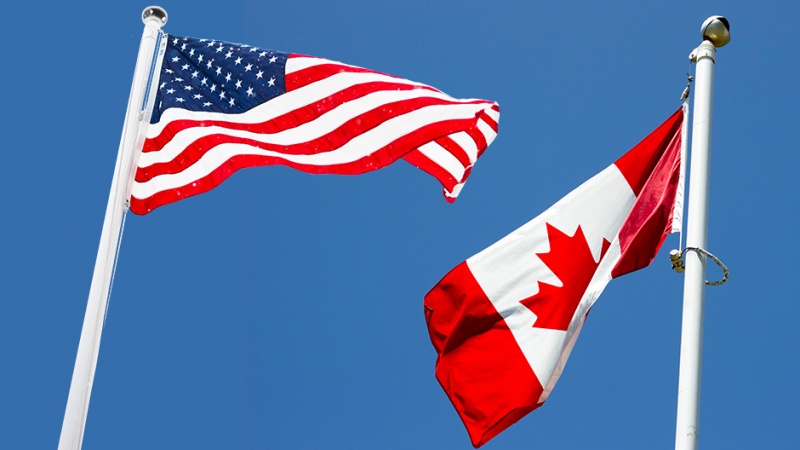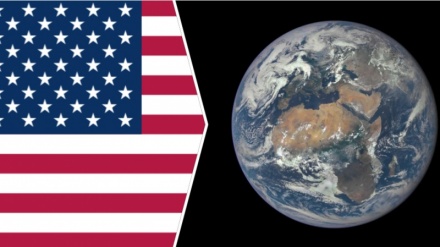Trade tensions increase as US-Canada talks miss deadline
Talks between US and Canadian representatives on a revamped North American Free Trade Agreement (NAFTA) broke up without an agreement, missing the deadline for a deal set by the Trump administration.
US President Donald Trump has now officially informed Congress of “intent to sign a trade agreement with Mexico, and Canada if it is willing, 90 days from now.” US trade representative Robert Lighthizer said the talks had been “constructive” and progress had been made. The Canadian side said only that discussions would resume next week.
Tensions rose in the meeting following the publication in the Toronto Star of off-the-record comments made by Trump during an interview with Bloomberg in the Oval Office. He said any possible agreement with Canada would be “totally on our terms” but he could not say this publicly because “it’s going to be so insulting they’re not going to be able to make a deal.” During the interview, Trump indicated that the main threat against Canada is the imposition of a 25 percent tariff on auto imports if a NAFTA deal is not reached.
One of the main points of difference between the two sides is the US demand that Canada abolish or at least significantly change, its agricultural supply management system which limits the imports of US dairy products and poultry.
Following the signing of a new NAFTA deal with Mexico, Trump warned that if Canada did not agree to US terms “the easiest thing we can do is tariff their cars coming in,” a threat he repeated in his recent remarks. Other points of difference are over whether there should be a dispute resolution system in which member countries can challenge any tariffs imposed by one of the others. The US secured the removal of this provision, which it claims infringes on its national sovereignty, in the deal with Mexico and wants it taken out of any agreement with Canada.
The intense pressure exerted by the Trump administration on Mexico and Canada is in no small measure due to the fact that it views the NAFTA negotiations as part of a global struggle in which the US is pitted against both China and the European Union. It wants to conduct this battle from a position where it has secured “Fortress North and Central America.”
Writing on the US-Mexico agreement, the Washington Post columnist David Ignatius pointed to its wider significance, writing: “The real importance of Trump’s Mexico move is that it clears the debris so the White House can concentrate on the bigger battle worth fighting—fairer trade with a rising China that has tried for decades to rig the game in its favor.”
The next step in the trade war against China, following the imposition of tariffs on $50 billion worth of goods, could come as early as this month. The Trump administration may go ahead with its threat to levy tariffs of up to 25 percent on $200 billion worth of Chinese imports.
The prevailing view in US business circles and in key sections of the political establishment is that the US should seek support from Europe in the push against China. As Ignatius put in his comment piece, “Europe and other trading partners” should be the “natural allies” of the US because “they, too, have suffered from China’s policies.”
Trump has made moves in this direction, striking a deal with European Commission president Jean-Claude Juncker in July for joint action in the World Trade Organization against China and for discussions on reducing tariffs on industrial goods, excluding auto, to zero.
However, the administration has not withdrawn its threat to impose a 25 percent tariff on auto imports under Section 232 of the 1962 Trade Expansion Act on national security grounds—the same provision that was used to raise tariffs on steel and aluminum imports.
Tensions over the threatened auto tariffs have flared again following Trump’s remarks in his Bloomberg interview. He rejected a proposal by EU trade commissioner Cecilia Malmström for a zero tariff on cars saying it was “not good enough” and denounced the EU in the same interview as being “almost as bad as China,” only smaller, when it came to trade.
These comments brought an immediate response from Juncker who said in a German television interview that the EU would not let anyone determine its trade policies and if the US imposed tariffs on vehicles “then we will also do that.”
An examination of the agreement with Mexico, which involves significant changes in the rules governing tariff free access of cars and trucks from that country into the US, indicates that unless there is a general tariff increase it will be ineffectual in protecting the position of North American producers.
The Wall Street Journal reported this week that Mexico and the US had negotiated a side letter to the NAFTA agreement that would “soften the blow of possible national-security tariffs the Trump administration is considering for auto imports.”
Mexico’s Economy Minister Ildefonso Guajardo said under the terms of the side letter if the US applied a general auto tariff, Mexico would still have duty-free access for cars that complied with the new NAFTA rules up to certain limits, believed to be above the current levels of Mexican auto exports to the US.
The Wall Street Journal article cited Daniel Ujczo, a lawyer working for a firm representing large US auto manufacturers and makers of components, who stated: “The takeaway here is that these Section 232 tariffs are not theatre or a negotiating tactic for the Trump administration; they’re a central tenet of US trade policy.” He said that Mexico had gone to great lengths to try to ensure the maintenance of existing production and that they had contingency plans in the event the tariffs were enacted. Ujczo concluded: “That shows that Canada, the EU and Japan should be on notice that these tariffs are a reality.”
During his presidential campaign, Trump repeatedly said that he would pull the US out of NAFTA which was signed by the US, Canada, and Mexico back in 1994. The president described NAFTA as the “single worst trade deal ever approved” by the US, and claimed that it has led to the outsourcing of thousands of jobs from the US to Mexico and China.
Most economic analyses indicate that NAFTA has been beneficial to the North American economies and the average citizen, but harmed a small minority of workers in industries exposed to trade competition. Economists hold that withdrawing from NAFTA or renegotiating NAFTA in a way that reestablishes trade barriers will adversely affect the U.S. economy and cost jobs.
By Nick Beams, an Australian-based activist and commentator.
EA/SS



